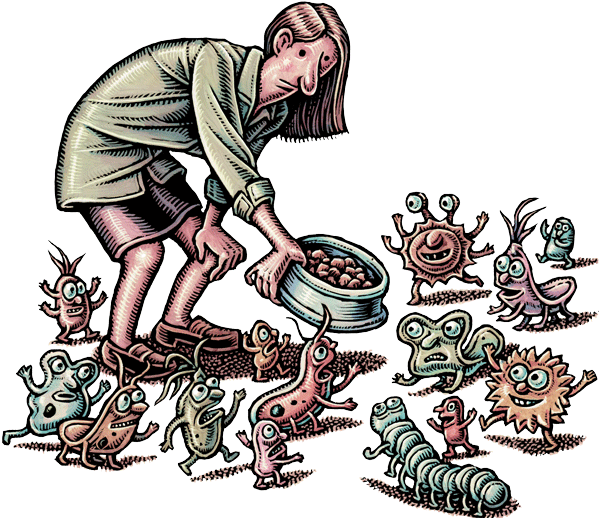Gut bacteria and human cells are linked in a social network
Bugs in the Hood


Gut bacteria and human cells are linked in a social network

OSU research builds the economy, saves lives

The gut microbiome — a teeming mass of bacteria, fungi, viruses, archaea and protozoans that live in our lower gastrointestinal tracts — has captured the attention of health-conscious consumers. Through controlled studies with mice, scientists have learned that by manipulating the microbiome, we can induce weight loss, affect pain perception and decrease hormonal responses to stress, among other fascinating outcomes. We know that the microbiome interacts with the immune, neuroendocrine and cardiovascular systems to affect health.

Chemicals produced by microbes in our intestines may affect the brain. In a study with laboratory mice, Kathy Magnusson and her colleagues have demonstrated that adaptability, short-term memory and learning for long-term memory are related to the microbiome and what we eat.

What’s the difference between a probiotic and a prebiotic?

Thousands of species of bacteria, viruses and fungi live on and in our bodies. Microorganisms teem in every pore and crevice, from mouth to stomach to intestines to colon.